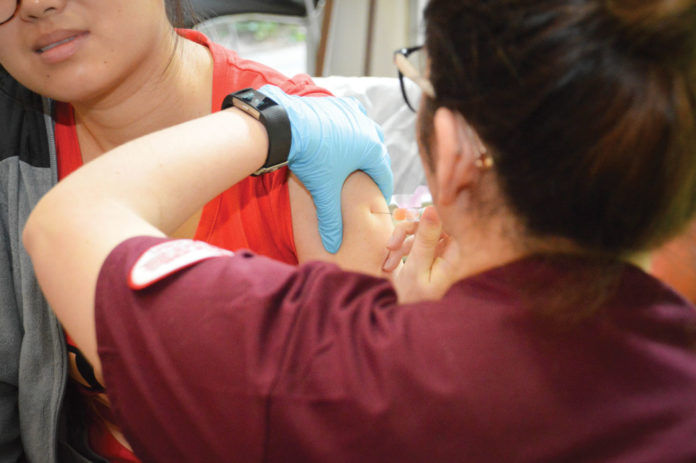
Chicken pox. Measles. HIV. Covid-19.
Even after the pandemic subsides, the coronavirus is likely to join the list of contagious diseases that remain in circulation for decades to come, according to health experts at the Oklahoma Medical Research Foundation.
“It looks like Covid-19 will be here for the long haul,” said OMRF President Stephen Prescott, M.D.
When illnesses stubbornly resist efforts to stamp them out, experts call them endemic.
“An endemic is a virus that’s always present, but not usually in huge outbreaks. It comes and goes in waves and just becomes a part of life, like the seasonal flu,” said OMRF physician-scientist Scofield, M.D., who also serves as associate chief of staff for research at the Oklahoma City VA.
Multiple initiatives are working toward the development of a vaccine for the SARS-CoV-2 coronavirus. But even if these efforts succeed, unless nearly everyone gets vaccinated, they won’t eliminate the virus.
“I’m skeptical a Covid-19 vaccine will wipe out the virus,” he said. “We have highly effective vaccines for pneumococcal pneumonia, but only about 2 of every 3 adults have received even one. As a result, pneumococcal pneumonia is still responsible for roughly half of all pneumonia deaths in the U.S. every year.”
A survey of Oklahomans earlier this month from Amber Integrated found that only 55 percent of those polled would get a vaccine against the coronavirus if one became available. Similarly, a poll by The Washington Post found that only 7 in 10 Americans were interested in getting vaccinated.
“Even if it proves safe and effective, you will still have many Americans who don’t vaccinate because they don’t believe in it or don’t trust a new vaccine,” Scofield said. “And that will keep the virus around.”
Outside the U.S., especially in developing companies, access to the vaccine could also be a major issue. For example, with pneumococcal pneumonia, nearly 500,000 children under the age of 5 die every year from what Scofield describes as a “nearly completely preventable disease.”
The effects of SARS-CoV-2 coronavirus will likely grow milder over time, said Prescott. “Our immune systems should develop ‘memories’ of the virus that will blunt or eliminate future infections,” he said. “It’s also possible the virus itself will mutate to a less lethal form, which is more advantageous from an evolutionary perspective.”
All told, Prescott said, “There’s a good chance it will join the four other coronaviruses that already circulate seasonally in our population.” Those viruses are much milder than the SARS-CoV-2 coronavirus, causing only cold-like illnesses.
One way or the other, Prescott said, we should be prepared to coexist with the virus for the foreseeable future. “That doesn’t mean a perpetual lockdown,” he said. “But it does mean incorporating precautions like frequent hand-washing and some forms of social distancing into our daily lives if we want to stay safe.”












